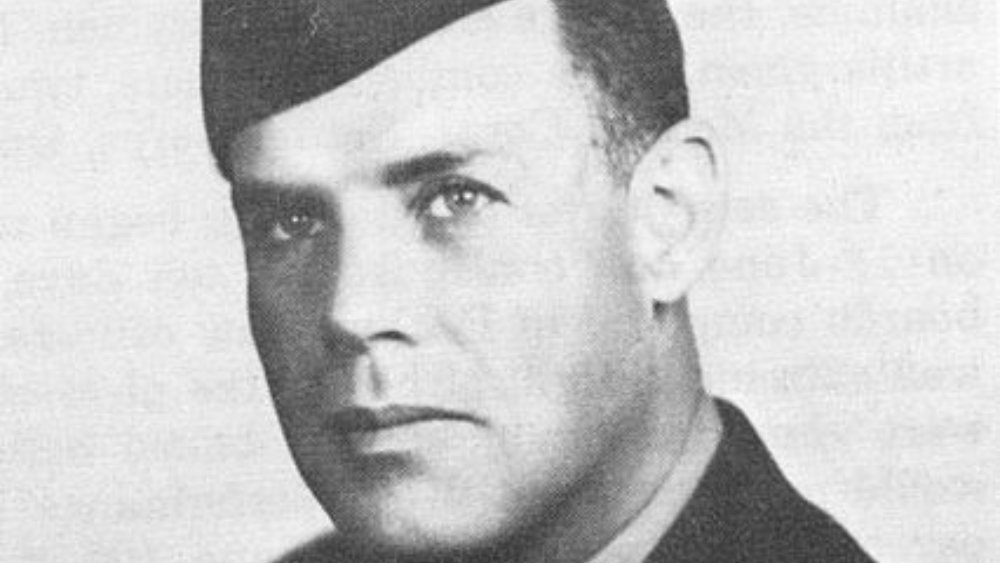William Darby – a Fort Smith, Arkansas native, earned his West Point diploma in 1933. He established the 1st Ranger Battalion at the British Commando School in June 1942. As a Field Artillery Officer trained them there. While Operation Torch, an invasion of North Africa, was underway, MAJ Darby commanded the unit.
The theater order to organize the 3rd and 4th Ranger Battalions in North Africa. Inspired by the 1st Ranger Battalion’s raid on and capture of El Guettar, Tunisia, on March 18, 1943. In July, all three Ranger battalions led the amphibious attacks on Sicily.
First, the three battalions of “Darby’s Rangers” saw combat success in Sicily and Italy. Up to the Battle of Cisterna (30 January–2 February 1944), they were rendered combat useless. After that, COL Darby was transferred to the War Department and Army Ground Forces’ top brass. In March 1945, COL Darby, now serving as the 10th Mountain Division’s assistant division commander, went to Europe.
A Heroic Military Figure and His Lasting Legacy
William O. Darby is a highly decorated military officer, also most remembered for his leadership during World War II. He was the driving force behind the establishment of Darby’s Rangers, an elite regiment preceding the present United States military rangers. Renowned for his valor and strategic acumen, Darby’s contributions significantly impacted the Allied troops’ performance in battle. Unfortunately, days before the end of the European War, he was killed by a sniper. Nevertheless, his memory lives on in the Rangers’ heroic history.
After his death, the William Darby Award was created to honor those who displayed remarkable bravery and leadership in battle. In addition, it also recognizes individuals who defend their country with the same guiding values. Organizations like Veterans for America have launched campaigns to celebrate Darby’s legacy by offering scholarships and educational opportunities for Veterans.
Earlier Military Service of William O. Darby
Darby’s initial duty station was at Fort Bliss, Texas. This is where he served as the 82nd Field Artillery’s assistant executive and supply officer. He moved in July 1934, taking command of the 1st Cavalry Division detachment at Cloudcroft, New Mexico. From September 1937 to June 1938, he attended Field Artillery School at Fort Sill, Oklahoma. He got extensive artillery training. Darby fought with the 80th Division at Camp Jackson in South Carolina, Fort Benning in Georgia, Camp Beauregard in Louisiana, and Fort Des Moines in Iowa after being promoted to captain on September 9, 1940.
Darby received a commission as a second lieutenant in the artillery after he graduated from West Point in 1933. Out of 346, he placed 177th. He reported to the 82nd Field Artillery of the 1st Cavalry Division at Fort Bliss, Texas. Darby was a captain in 1940 after serving in the artillery regiment for eight years. He set off for Belfast on January 15, 1942, along with the 34th Infantry Division’s initial arrival in Northern Ireland. Moreover, The V Corps men who landed in Ireland initially had to wait patiently until the remainder of the division arrived during the following four months.
William Darby desired activity so desperately that he submitted a transfer request, but it was turned down. Colonel Lucian Truscott, one of the infantry division’s most promising officers, arranged training with the British army.
Inspiring Generations, Supporting Veterans
William O. Darby swiftly rose to lieutenant colonel as the Second World War went on. Following America’s entry into WW II, he belonged to the first American forces dispatched to Northern Ireland. This is where he developed an interest in the British Commandos.
Authorizing the 1st Ranger Battalion, and started its training at Carrickfergus, Northern Ireland, on June 19, 1942. Thus, Darby oversees the Ranger units’ creation and training when the U.S. Army decides to create them.
The 34th Infantry Division, a National Guard division, and the Red Bull, among the first ground combat soldiers to enter Europe, provided many of the first Rangers as volunteers.

Remembering the Legacy of William O. Darby
President George W. Bush honored William O. Darby with the Medal of Freedom in 2004 (Presidential) for his service, citing him as one of the most significant military figures in American history. The Medal of Freedom, awarded to people who have made noteworthy contributions to society, is the nation’s highest civilian distinction, and Darby’s receipt of this medal pays proper homage to his legacy.











